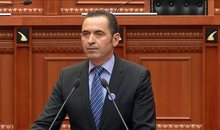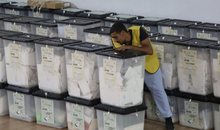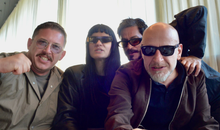
International Observers: Elections in Albania marred by abuse of power and voter intimidation
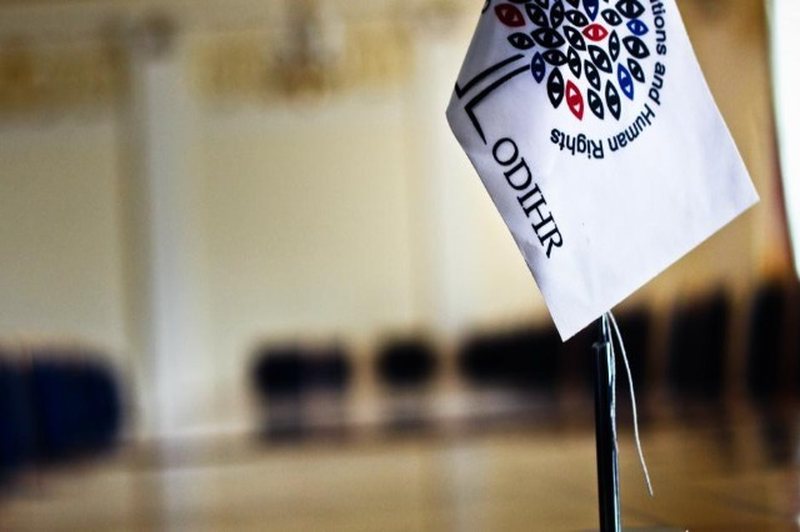
Politiko.al
Albania’s May 11 parliamentary elections failed to meet key democratic standards, according to the preliminary findings of the OSCE/ODIHR Election Observation Mission. The report cites widespread misuse of state resources by the ruling Socialist Party, systemic pressure on voters, particularly public employees, and a heavily skewed media environment as major factors undermining the integrity of the vote. Observers documented vote-buying, intimidation, and irregularities in both the campaign and election day procedures, raising serious concerns about the fairness and legitimacy of the electoral process.
Below is a summary of the key findings:
SUMMARY:
- Contestants did not enjoy a level playing field.
- Some candidates reported facing intimidation.
- The ruling party benefited from widespread use of administrative resources during the campaign, creating an undue advantage.
- There were numerous allegations of pressure on voters, especially public employees.
- The electoral legislation and its narrow interpretation by the election administration did not prevent abusive practices.
- The concentration of media ownership is undermining the plurality of news sources, along with self-censorship among journalists and the two largest parties dominating the news coverage, limiting voters’ opportunity to make an informed choice.
- No authority was designated to detect harmful, manipulative online content.
- The new coordination mechanism among institutions to investigate and prosecute electoral crimes is a welcome development, but follow-through is necessary to address persistent concerns of electoral malpractice.
- Election day:
- Number of incidents of intimidation and inducement of voters
- There was a frequent lack of adherence to procedures, and
- Some procedural and transparency shortcomings in the vote count.
- CEC
Some stakeholders perceived some CEC members as politicized.
- Out-of-country-voting
The challenge of organizing out-of-country voting was significant, and some issues with ballot delivery were noted.
- Replacement of commissioners:
Late replacement of members nominated by political parties, especially for voting centre members in the days leading up to the election.
THE CAMPAIGN:
The playing field was uneven.
The ruling party benefited from the widespread use of administrative resources and institutional leverage, including:
- The waiving of a large number of state fines announced shortly before election day,
- Senior government officials engaged in a high number of official events that often overlapped with campaign messaging, blurring the line between state and party.
- Allegations of pressure on public employees,
- cases of intimidation of opposition supporters and
- The misuse of patronage networks was noted, which is inconsistent with international standards
Reports of vote-buying,
Attempts to unduly influence marginalized voters,
Alleged influence of criminal elements on some political parties.
Campaigning on social networks was not regulated, and no authority was designated to monitor it.
Despite most political parties signing a Code of Conduct on Digital Campaigns, several contestants disseminated divisive or manipulative content, while third-party accounts reportedly used coordinated inauthentic behaviour on the online platforms to amplify attacks against the opposition.
The government’s ban on TikTok as of 6 March limited some candidates' campaign opportunities.
Although the CEC identified violations in public institutions’ posts, it discontinued investigations.
13.10 Key ODIHR and Venice Commission recommendations remain unaddressed
Media environment: highly constrained, with the independence, diversity, and integrity of news content undermined by non-transparent financing, concentrated ownership, interference in editorial autonomy, and political influence. There is a lack of independent reporting, undermining the media’s oversight role and a lack of critical journalism and robust information, and the majority of media outlets are perceived to be aligned with the ruling party. Although the Constitution protects freedom of expression, defamation remains criminalised, and journalists continue to face defamation cases. The appointment procedures for both the public broadcaster and the audiovisual regulator lack safeguards for de facto independence.
The Complaints and Sanctions Commission (CSC) applied a narrow interpretation of the rules on the use of administrative resources, with such practices often going unsanctioned.
The new coordination mechanism between SPAK, the CEC, and the General Prosecutor’s Office enabled better information sharing on electoral crimes and was seen as having a possible deterrent effect. However, some ODIHR Election Observation Mission (EOM) interlocutors questioned the effectiveness of police in handling electoral offences and the effectiveness of efforts against politically connected organized crime.
ELECTION DAY
A fairly high number of negative assessments:
- procedural shortcomings,
- Some pressure on voters
Serious irregularities observed:
- a significant number of incidents of intimidation and
- party observers and affiliates interfering in the process,
- inducements and allegations of vote
The secrecy of the vote was frequently compromised due to:
- The layout of polling stations,
- overcrowding, and
- interference.
More than 50% of the polling stations observed were not adequately accessible for persons with disabilities to vote independently.
Electronic voting:
- Many voters are unfamiliar with the process,
- Electoral officials were not adequately trained or lacked clarity on their roles.
- The electronic transmission of results from e-voting centres was cancelled, and manual transmission was conducted at the district level.
LEGAL FRAMEWORK AND ELECTORAL SYSTEM
Many long-standing recommendations remain unaddressed:
- composition of lower-level election commissions,
- suffrage rights of persons with intellectual or psychosocial disabilities,
- criminal liability for defamation,
- Independent media coverage during electoral campaigns,
- interim reporting on campaign finance, and the extension of campaign finance regulations to third parties.
Minor deviations persist despite the legal obligation and the efforts to make the number of voters required to elect a candidate as close as possible
ELECTION ADMINISTRATION
In the last few days before election day, the CEC informed the ODIHR EOM that there were up to two hundred additional replacements. The DP informed the ODIHR EOM that some of their members were changed following alleged threats (Note: DP informed the ODIHR EOM that 20 VCC staff in Unit 8 in Tirana have withdrawn due to pressure).
Some stakeholders perceived some CEC members as politicized.
Homebound voting is not available. Persons with a disability may request assistance from a family member or another voter in the polling station. The legal framework does not provide for postal voting for hospitalized, homebound, or voters with reduced mobility.
DIASPORA VOTE:
Isolated instances where the voter did not receive a ballot or received two ballots, and the duplicate printing of voters’ address labels.
Lack of direct, in-person voter education for persons with disabilities and the lack of education for the Roma community on the new electoral system and how to correctly mark the ballot paper, potentially limiting the ability of some voters to cast their votes correctly and independently.
THE USE OF TECHNOLOGY IN ELECTIONS
The ODIHR EOM interlocutors generally expressed confidence in the technology, but some concerns have been expressed regarding a lack of trust, mainly by the opposition. (Note: During the functional testing of voter verification devices on 28 April, political activist Altin Goxhaj questioned their trustworthiness. The CEC stated in 2024 that the DP remains skeptical and must agree before expansion. In 2023, the DP Chairperson denounced the pilot as “a monstrous, digitally cooked manipulation”.)
Apart from information on the public tender (Note: Smartmatic won open tenders for both
devices in 2021. In 2025, they were just tasked with updating software and supporting the CEC during
the election period).
The CEC did not publish further information about the security tests. While it is understandable that the
CEC does not disclose sensitive security information, it also did not transparently communicate the
scope, the methodology, and a summary of the results of such tests.
CAMPAIGN ENVIRONMENT
The playing field was uneven, with the ruling party benefiting from the use of administrative resources and institutional leverage. The campaign's tone was often confrontational, with personal attacks between the two main parties and their leaders. The SP aimed to discredit the opposition, while the DP accused the government of corruption and alleged that it is linked to organized criminal groups. (Note: On 14 April, Deputy Prime-minister Belinda Balluku posted about DP: “They steal, kill, slander, and curse”; On 23 April, Mr. Berisha stated about Rama’s allies: “Your kind will be declared terrorists…there will be no place for you on Earth”; on 24 April, Mr. Berisha accused Mr. Rama and Ms. Balluku of orchestrating a “mafia-driven land grab”).
The law prohibits to use of state resources in support of the campaigns of electoral contestants, but it allows campaigners to perform their official duties during the campaign. Notably, shortly before and during the campaign period, ministers and the prime minister engaged in official events, held inspections of facilities, promoted investment and infrastructural projects, overall contributing to the advantage of the ruling party, and at times explicitly campaigning.
(Note: On 18 April, the Minister of Health and Social Protection promoted the government’s investment in Lezhë Regional Hospital; on 19 April, the Prime Minister, Deputy Prime Minister, and the Minister of Infrastructure and Energy presented the new gasification project in the city of Korçë. On 28 April, the Minister of Interior presented a new development project for the production of military vehicles. The Prime Minister also toured the newly renovated Municipal Hospital of Mirditë on 18 April, the Psychiatric Hospital in Vlorë on 27 April, the construction site of a new school in Tirana on 28 April, presented the construction of anew high-techfacility in Shkozë on28 April, and promoted the investments in the region in Gjirokastër on 3 May.)
By law, no legislation granting benefits to specific segments of the population may be proposed or adopted in the four months preceding election day. While the law has been formally respected, some policies approved before this period resulted in benefits being distributed to certain groups of voters during the electoral period, and several large-scale events took place during the campaign period.
(Note: A 9 January Decision of the Council of Ministers provided for pensioners in Albania to receive a spring bonus along with their monthly pension. Distribution of the payments of ALL 10,000 (approximately EUR 100) or ALL 5,000 (EUR 50), depending on the level of pension, started on 1 March. Projects budgeted for in 2024 by municipalities that were initiated immediately before or during the elections, included: road works in Durres, Himarë, and Librazhd, invitation to tenders in Himarë, Mat, Roskovec, and Shkoder; and subsidies in Lezhë, Klos, and Tirana. Large-scale or highly visible events included the March Tourism Fair in Berlin, attended by ministers and the Prime Minister and widely reported on, and the Albanian segment of the Giro d’Italia cycling event, which was scheduled to take place from 9 to 11 May, coinciding with the electoral silence and election day.)
In December 2024, the government decided to waive fines for unauthorized constructions, non-compliance with COVID-19 restrictions, and for agricultural and livestock producers, which were imposed between 2015 to 2024 and announced this on 9 May 2025, with the apparent purpose of influencing voters.
Public institutions and state entities are required to report to the CEC any public activities in the four months before election day, which the CEC may decide to prohibit as misuse of state resources. Of the 4,522 official events registered during this period, the CEC prohibited only 18 as involving misuse of state resources, raising doubts as to its capacity to review all submissions and its narrow approach to interpreting the law in this respect. Although many of these activities formally complied with legal provisions, their high number created opportunities for the incumbent to use them for campaign purposes, particularly in regions where high-level government officials served as SP political coordinators.
(Note: The highest number of events was in municipalities in the Fier region, where the Deputy Prime Minister is SP’s political leader. High numbers of instances were also registered in Lezhë, led by the Minister of Justice, and Gjirokastër, led by the Minister of Tourism. Municipalities led by the opposition registered none or only a limited number of such events.)
THE WIDE USE OF SUCH PUBLIC ACTIVITIES FOR ELECTORAL PURPOSES FURTHER REINFORCED THE RULING PARTY’S UNDUE ADVANTAGE, AND BLURRED THE LINE BETWEEN THE STATE AND PARTY, CONTRARY TO PARAGRAPH 5.4 OF THE 1990 OSCE COPENHAGEN DOCUMENT.
Note: In paragraph 5.4 of the 1990 OSCE Copenhagen Document, the OSCE participating States committed to “a clear separation between the State and political parties)
COMPLAINTS:
Of the 166 such complaints received by the CEC, a significant portion was about the use of public resources, road paving, prohibited public-private partnerships, and the initiation of social assistance, subsidies, and public procurement tenders, made in connection with heads of public institutions, mayors, and ministers. In the majority of the decisions issued by 9 May on these matters, the CEC found that, since the budgets were allocated before the start of the four months, the measures were not in violation of the law, and in 37 cases, the CEC decided not to initiate an administrative investigation. Overall, the CEC decided on only 118 of the complaints by election day. The lack of an expedited procedure addressing complaints raises concerns about the efficiency of the current system for investigating and deciding upon election-related administrative offences by the CEC.
The ODIHR EOM received widespread allegations and reports that municipal employees were pressured by their superiors to participate in or support the SP’s campaign.
(Note: Allegations and first-hand reports of municipal employees pressured by their superiors to attend campaign events by SP were made in Durrës, Fier, Has, Korçë, Peshkopi, Shkodër, Tirana, and Vlorë. Allegations of pressure on municipal employees to take part in the SP campaign, or support it, including financially, were made in Devoll, Elbasan, Gjirokastër, Korçë, Lezhë, Pukë, Shkodër, and Tropojë. Allegations of pressure on public sector employees to relay information about their family or friends living abroad were made in Dibër, Durrës, Elbasan, Fier, Korçë, Lezhë, Shkodër, and Tirana.
While the SP organised a number of campaign events targeting women, at these events, concerns were raised that some attendees were instructed by their public sector employers to attend.
(Note: In 16 events held by the SP for women, observed by the ODIHR EOM, the majority of attendees were public sector employees. In four of these events, some attendees informed the ODIHR EOM that they had been instructed to attend by their employer.
Influence of patronage networks across the country, alleging that promises of future public employment, administrative favours, and permits were used as a means to secure votes. Allegations of voters afraid to be seen at events of opposition parties for fear of reprisal, and instances of intimidation of opposition and some ruling party candidates, were also reported to the ODIHR EOM.
(Note: First-hand reports of threats were made in Berat, Durres, and Fier. Allegations of voters refraining from attending opposition party events for fear of retribution were made across the country, and with particularly concrete and elaborated accounts in Durrës, Elbasan, Gjirokastër, Lezhë, Korçë, Kukës, and Tirana. Further, allegations of voters being intimidated by the police were reported in Fier. On May 4, family members of an SP candidate were allegedly threatened in Lezhë.
Several interlocutors stated that marginalized communities were especially vulnerable to pressure from the public administration to vote for SP. This is inconsistent with international standards that require voters to be free from undue influence or coercion.
Note: See paragraph 19 of the 1996 General Comment 25 to Article 25 of the ICCPR, which states that “[persons entitled to vote must be free to vote for any candidate [..] and to support or to oppose government, without undue influence or coercion of any kind which may distort or inhibit the free expression of the elector’s will.”
Vote – Buying:
Several allegations of vote-buying were noted during the campaign, and investigations were initiated in 37 cases.
(Note: Specific allegations of vote buying were made in Elbasan, Korçë, Mirditë, Shkodër, and Tirana.)
Links of the ruling party with organized crime:
Several ODIHR EOM interlocutors made allegations of links between political parties and organized crime in some areas, with organized crime groups intimidating and threatening voters and, at times, candidates.
(Note: such allegations were made to the ODIHR EOM in Durres, Elbasan, Tirana, and Vorë, where the alleged perpetrator was reported to be linked to an organized criminal group.)
Although most political parties signed a voluntary Code of Conduct on Digital Campaigns before the campaign, including DP and SP, several contestants shared divisive, discriminatory, and manipulative content.
Note: Prime Minister Edi Rama shared a post from an 18 April campaign event in Dibër, where he said: “half of the men in the country are retarded”. In a post from a 22 April meeting with pensioners in Gjirokastër, Mr. Rama said: “If you are choosing between the EU and the swamp, and you choose the swamp, that means you're not well — politically, you're autistic.” Mr. Rama repeatedly referred to his opponent Mr. Berisha as a ‘swamp owl’, and other opposition leaders as ‘swamp creatures’. Mr. Berisha, in turn, referred to Mr. Rama as ‘Antichrist’, a ‘monster’, and to the government as ‘narco-dictatorship’. Mr. Rama frequently used AI-generated videos when targeting Mr. Berisha.
Some civil society organizations monitored the campaign on social networks, including the Balkan Investigative Reporting Network, which reported on instances of coordinated inauthentic behaviour used to artificially amplify the engagement, especially of the third-party accounts that disseminated attack ads against the opposition, and the Coalition for Reforms, Integration and Consolidated Institutions, which monitored paid political advertisements on social networks.
(Note: See 5 May article on the BIRN report.
Media
The independence, diversity, and integrity of news available to voters are eroded by the dependence of most media on non-transparent financing by political and business interests, often reliant on government contracts. Concentration in media ownership further undermines the plurality of news sources, contrary to international standards.
(Note: According to the European University Institute 2024 Media Pluralism Monitor, the top four owners in the broadcast market control 72 per cent of revenues and 87 per cent of the audience share. Paragraph 40 of the UN Human Rights Committee (UNHRC) General Comment No. 34 stipulates that the states parties should take appropriate action “to prevent undue media dominance or concentration by privately controlled media groups in monopolistic situations that may be harmful to a diversity of sources and views.”)
According to some ODIHR EOM interlocutors, the ownership of some major advertising sales houses by political interests hampers a fair distribution of advertising revenues, while a lack of reliable audience measurement prevents a transparent and accountable allocation of public advertising.
Note: See also the assessment by the Chairperson of the Association of Albanian Journalists
The vast majority of media outlets are perceived to be affiliated with the ruling SP.
(Note: According to Balkan Investigative Reporting Network (BIRN), among the 10 largest TV stations (based on financial statements), TV Klan and Top Channel occupy 64 per cent of the market. The only TV station among the 10, perceived to be aligned with the DP, Syri TV, in 2023, “accounted for 1.7% of the total television market revenue, or 113 million lekë. The declared revenue fell by 22% compared to 2022.
The Public Broadcaster Albanian Radio-Television (RTSH) is not considered to enjoy a wide audience, and the bi-partisan appointment procedure of both the RTSH and the Audio-visual Media Authority (AMA) management does not provide for their de facto independence.
(Note: On 6 September 2024, the RTSH Director resigned following concerns raised about the positions he held with the SP in the past. On 17 February 2025, the Parliament dismissed the RTSH Steering Council for irregularities in the selection of a new RTSH Director. A new Steering Council was appointed on 17 March, which eventually elected a new Director on 25 April 2025.
Widespread interference by media owners in editorial autonomy, along with self-censorship among journalists, negatively affects the information made available to the public. In addition, journalists are repeatedly exposed to verbal and, at times, physical assaults by public officials.
(Note: The European Centre for Press & Media Freedom reported 45 incidents against media freedom in 2024. On 27 March 2024, the Committee to Protect Journalists called upon public officials, including Prime Minister Edi Rama, to stop abusive language and intimidating behaviour towards journalists. On 26 March 2025, safejournalists.net reported a recent physical assault on a journalist by a Tirana official.)
Furthermore, journalists report shrinking access to government representatives, including the Prime Minister, with a declining number of press conferences held, and journalists at times prevented from attending events, contrary to international standards.
(Note: Paragraph 13 of the UNHRC General Comment 34 states that “[t]he free communication of information and ideas about public and political issues between citizens, candidates and elected representatives is essential. This implies a free press and other media able to comment on public issues without censorship or restraint and to inform public opinion”.)
Editorial news coverage is often replaced by material prepared by government bodies, undermining editorial integrity. The Media and Information Agency (MIA), under the prime minister’s office, centralizes and filters information issued about the government and public institutions.
(Note: In October 2021, just before the launch of the MIA, six international media NGOs urged to cancel its establishment as it could “be used to further solidify control over the flow of public information”).
Several civil society-founded and donor-funded media outlets provide investigative and public interest journalism, but are affected by recent cuts in international funding.
(Note: According to the Center for Quality Journalism, six projects funded by the US State Department were either suspended or terminated. Among them were the Investigative Network Albania (INA), which funded and published investigations, and the “31 minutes” investigative TV program, broadcast on all major TVs.
Overall, the Constitution and legislation protect freedom of expression. However, despite previous ODIHR recommendations, defamation remains a criminal offence. A significant number of civil and criminal defamation cases have been brought against journalists in recent years, including strategic litigation against public participation (SLAPP) cases.
(Note: A Safejournalists.net study reported a total of 8 criminal and 65 civil defamation cases in 2023.)
On 6 March, the Council of Ministers temporarily banned access to TikTok; this broad ban is incompatible with international standards. According to some ODIHR EOM interlocutors, the ban had an additional detrimental impact on the ability of all contestants, including non-parliamentary parties, to campaign on an equal footing.
Note: Paragraph 43 of the UN Human Rights Committee (UNHRC) General Comment No. 34 stipulates that any restriction on websites, blogs, or other online communication platforms must be narrowly tailored and content-specific. Broad or generic bans, “blanket bans”, on the operation of such systems, including internet service providers or search engines, are incompatible with international standards on freedom of expression. Three civil society organizations challenged this decision in the Constitutional Court on 25 March.
Ultimately, the constrained media environment and the failure to implement legal requirements in good faith deprived voters of independent, diverse, and robust information about the electoral contest.
Election Dispute Resolution
As of 11 May, the CSC reviewed 17 complaints against CEC decisions, most related to alleged irregularities before the start of the electoral campaign. It accepted the appeal in 11 cases, overturned two CEC decisions, and imposed four administrative fines of ALL 3,000 for irregularities in the reporting of public institutions on their activities and negligence of CEAZ members. The remaining complaints were rejected.
The CSC reflected a narrow interpretation of the rules on the use of administrative resources in a campaign, limiting their application strictly to the official campaign period, at odds with good electoral practice.
The Electoral College of the Tirana Administrative Court of Appeal (Electoral College) is the highest authority for adjudicating election-related disputes, but it operates with limited administrative staff, insufficient training, and financial resources. As of 11 May, the Electoral College had adjudicated and dismissed three complaints.
As of 11 May, a criminal proceeding was initiated in 25 out of 60 cases of alleged electoral crimes, which include allegations of misuse of public office for electoral purposes and obstruction of electoral subjects.
(Note: Five proceedings have been registered at the Prosecutor's Office in Fier, six in Elbasan, two in Gjirokastër,
Shkodër, Lezhë, Dïber and Saranda and one in Korçë, Durres, Vlorë and Kukës. Ten were initiated ex officio, 3 following reports from citizens, 30 from the police, and 8 from electoral subjects.
SPAK has jurisdiction over cases of electoral corruption involving categories of high-level public officials or organized crime. For the first time, SPAK established a nationwide investigative task force and launched an online platform for reporting electoral offences.
Note: From January 2025 until 10 May, of the 139 criminal reports registered, 56 were submitted by citizens through the SPAK online platform, the rest were mainly from police and DP, and some were referred by the General Prosecutor.
By 10 May, out of 138 reports on alleged electoral crimes, 39 criminal proceedings have been initiated, the majority concerning allegations of corruption. Notably, SPAK initiated nine proceedings ex officio. The cooperation between the SPAK, CEC, and General Prosecutor’s Office, based on an inter-institutional protocol, facilitated information sharing on electoral crimes, prioritization of the investigations, and was in general positively assessed by ODIHR interlocutors. SPAK was generally perceived as a trusted institution by the IEOM interlocutors and as having a possibly deterrent effect. However, some interlocutors raised concerns about the effectiveness of the police when dealing with election-related offences, as well as when related to organised criminal networks. (see also Campaign Environment).
Participation of National Minorities
They also noted that members of the Roma community were generally unfamiliar with electoral procedures and received no specific voter education. Further, pressure on the Roma and Egyptian communities to sell their votes was reported to the ODIHR EOM.
Note: This was reported to the ODIHR EOM in Korcë and Tirana.
ODIHR EOM Long-term observers noted that Roma voters in some areas were unclear about the exact locations of their voting centres, due in part to insufficient official communication.
Note: This was reported to the ODIHR EOM in Tirana
Election Day
Election day was generally calm and managed transparently, but with a lack of adherence to procedures in many places during opening and voting, and some reports of intimidation and inducements being offered to voters.
The IEOM observed opening in 122 voting centres, assessing the process negatively in one-third of the observations: late opening, VCC members were unfamiliar with opening procedures, and the ballot box was not shown to be empty to those present, the setup procedures for the biometric identification device were not followed, unauthorized persons were directing or interfering in the work of the commission. In electronic voting centres, IEOM observers reported a failure to follow the procedures in many instances.
Note: Following reports of some falsified accreditations, the CEC Regulatory Commission revoked all party observer accreditations for Vorë District on election day
In 4.6 per cent of the 995 observations, a fairly high number, the process was assessed negatively, largely due to procedural shortcomings and some pressure on voters.
IEOM observers reported that in 23 per cent of voting centres observed, voters could not always be identified by the voter identification devices, and in 24 per cent of the voting centres, voters were not always checked for traces of ink. Some biometric identification devices suffered malfunctions, resulting in interruptions. In 23 per cent of voting centres observed, some voters’ fingerprints could not be properly read. Security codes were not recorded in the VCC Meeting Record Book in 5 per cent of places observed. The layout of voting centres was assessed as inadequate for polling in 5 per cent of observations, largely because it contributed to compromises of the secrecy of the vote, which in 12 per cent of voting centres observed was not always respected. The secrecy of the vote was also compromised by the interference of party observers or VCC members. Group voting, mostly family voting, was observed in 11 per cent of voting centres visited, and proxy voting, often for family members, in 3 per cent. Voters’ understanding of voting procedures was negatively assessed in 13 per cent of observations, indicating a need for greater voter education on new voting procedures following the introduction of preferential lists.
Several cases of significant violations and incidents were observed throughout the day. The IEOM noted tension or intimidation in 4 per cent of voting centres visited, which often involved party observers or affiliates standing in the entrance to the voting centres and interacting with voters or interfering in the work of VCCs. Unauthorised persons, including party activists, were present in 2 per cent of places visited and were interfering in some instances. In 2.4 per cent of voting centres, there were indications of voters being induced to vote for a particular candidate, including allegations of vote buying. In 3 per cent of voting centres, observers reported unauthorised persons keeping track of who had voted. Following the close of polls, the CEC reported that cases related to five incidents were referred to the prosecutor’s office, two in Tirana and one each in Elbasan, Korçë, and Berat.
With regards to electronic voting, many voters appeared unfamiliar with how to use the voting device, and many did not manage to vote within the three-minute time limit. Some VCC members and technology operators were not adequately trained on relevant procedures or lacked clarity on their respective roles. In several places observed, voters were not able to vote independently, and assistance was provided to those requiring it, as well as overcrowding due to the time it took voters to vote in some cases, compromised the secrecy of the vote.
There was a lack of adequate accessibility for persons with disabilities in 50 per cent of the voting centres observed. The large number of voting centres that were inaccessible for independent voting demonstrated a great need for further efforts to ensure accessibility for all voters. Additionally, the layout inside the voting centres was observed to be not suitable for persons with disabilities in 24.4 per cent of places visited. This, combined with the absence of a voting method for voters who are homebound, hospitalized, or those with mobility issues, may have negatively impacted their participation.
Latest news


Nothing new from Edi Rama's politically subjugated justice
2025-05-19 16:33:53
Diagnosed with cancer, Biden breaks silence
2025-05-19 16:14:30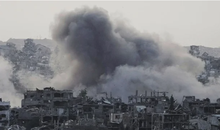
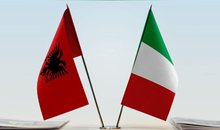
Pensions with Italy, here's what immigrants benefit from
2025-05-19 15:56:54
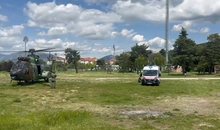
He fell from the church roof, the priest was brought by helicopter to Tirana
2025-05-19 15:40:16
Who spends more money, men or women? The statistics speak for themselves
2025-05-19 15:28:57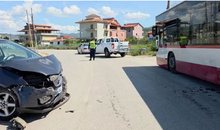
Car collides with Fier-Roskovec bus, one injured
2025-05-19 15:24:03
Since... what if...
2025-05-19 15:05:20

"Partizani" file, GJKKO passes Berisha and Malltezi on trial
2025-05-19 14:46:23
The euro exchange rate starts the week falling, near its historical minimum
2025-05-19 14:32:43
Britain agrees to restore trade and defense ties with the EU
2025-05-19 14:22:32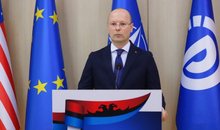
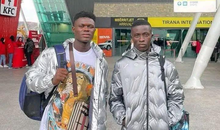
Liberian footballers remain stranded in Albania, football club did not pay them
2025-05-19 14:00:16
Shkodra Police Destroy Over 1,500 Narcotic Plants
2025-05-19 13:48:24
A phone call in Albania becomes a "bone of contention" between Meloni and Macron
2025-05-19 13:35:31
The drop in domestic prices reduces milk imports for January-April by 15%
2025-05-19 13:30:06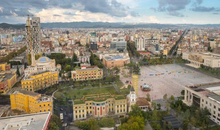
EC report: Albania's economy expected to slow down in 2025-2026
2025-05-19 13:18:06
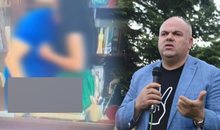
Safet Gjici released from prison due to serious health condition
2025-05-19 12:56:05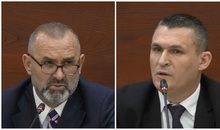
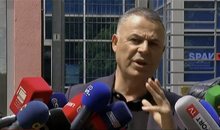
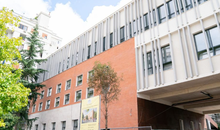
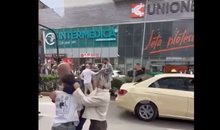
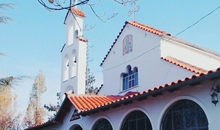
NAME/ Priest falls from church roof in Korça, taken to hospital
2025-05-19 12:08:02
GJKKO returns the file on Asllan Dogjani to SPAK
2025-05-19 12:00:51
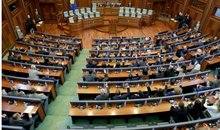
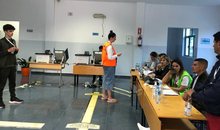


Ajola Xoxa appears in SPAK
2025-05-19 11:19:18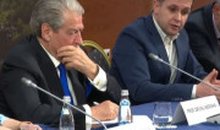
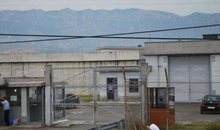
Prisoner ends life in Fushë-Krujë prison
2025-05-19 10:57:03

Diplomats: EU and Britain have agreed to "restart" relations
2025-05-19 10:40:02
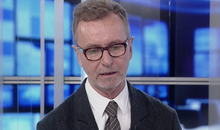

SPAK's measure, Berisha appears before the Special Prosecution Office
2025-05-19 10:18:05
Fier/ 23-year-old man injures his father with a gun
2025-05-19 10:11:21
IHP: 39.1% of Albanians suffer from hypertension
2025-05-19 10:03:34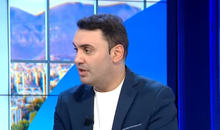
Këlliçi: The US and the US have not reacted to Rama's fourth term
2025-05-19 09:56:02
On a new type of electoral state and a path out of its regimes
2025-05-19 09:55:00
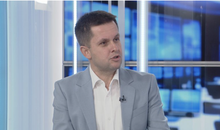

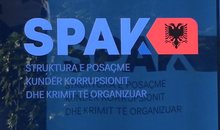
Suspicions of electoral crimes, SPAK and BKH conduct investigations in Elbasan
2025-05-19 09:04:31
GJKKO pritet të vendosë nëse Berisha dhe Malltezi do të kalojnë për gjykim
2025-05-19 08:59:47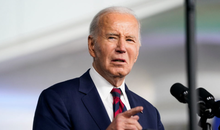
Former US President Joe Biden diagnosed with cancer
2025-05-19 08:51:29
Eurostat: Albania leads Europe with almost half of the population in poverty
2025-05-19 08:35:27
Pro-European Nicusor Dan elected president of Romania
2025-05-19 08:24:10
Horoscope, what do the stars have in store for you today?
2025-05-19 08:11:49
Clear weather, what are the temperatures expected to be during the day?
2025-05-19 07:58:47
Morning Post/ In 2 lines: What mattered yesterday in Albania
2025-05-19 07:44:50
Horoscope signs that will be lucky this week
2025-05-18 21:43:57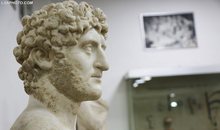
Albania's archaeological wealth remains homeless
2025-05-18 21:13:12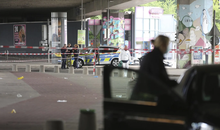
Knife attack in Germany, 5 people injured
2025-05-18 20:53:56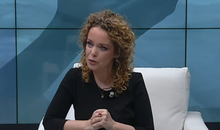

Arbana Osmani returns to television, here's where we'll see her
2025-05-18 20:15:24
PLAN A: Democrat in heart, democrat in mind, democrat in the world
2025-05-18 19:50:49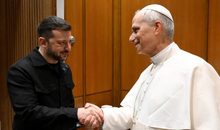
Pope meets with Zelensky after inauguration Mass
2025-05-18 19:26:03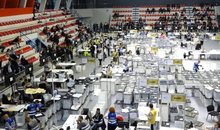


Pope Leo calls for unity, vows not to be an "autocrat"
2025-05-18 18:26:51

Monika Kryemadhi comes as a film actress, shares footage from the filming set
2025-05-18 17:49:01
Video/ Incident in MMA, Albanian athlete loses consciousness after 100 punches
2025-05-18 17:30:14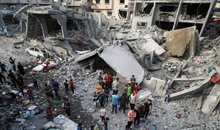
Israel announces new offensive in Gaza
2025-05-18 17:13:11



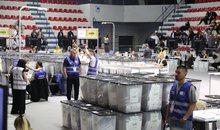
The counting of diaspora votes in Berat and Vlora is completed
2025-05-18 15:51:27
Pope Leo XIV "broke" protocol, hugged his brother at the inauguration ceremony
2025-05-18 15:22:47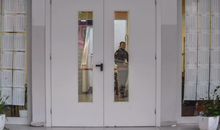

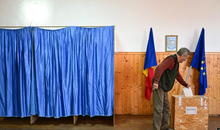
High Romanian turnout in elections that could deepen divisions in the EU
2025-05-18 14:30:03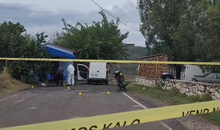
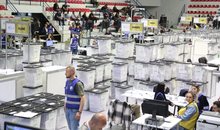
Does the diaspora vote reflect the opinion of immigrants?
2025-05-18 13:47:25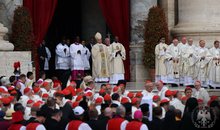
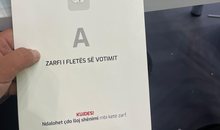

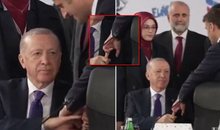
Video/ Footage goes viral, Erdogan forcibly grabs Macron's finger
2025-05-18 12:12:07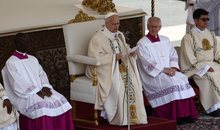
Pope Leo XIV's inauguration mass begins in St. Peter's Square
2025-05-18 11:48:16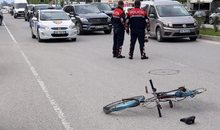


Foreign exchange, May 18, 2025
2025-05-18 10:43:26
"Rivalry with the Dollar!" The Economist: Can the Euro Become a Global Currency?
2025-05-18 10:28:45

Mexican navy ship crashes into Brooklyn Bridge in New York, 2 dead, 17 injured
2025-05-18 09:37:43
With only two votes difference, Xhaçka takes Gjylameti's mandate in Tirana
2025-05-18 09:10:02
With clear skies and passing clouds, here's the weather forecast for today
2025-05-18 09:02:45
Horoscope for today, May 18, 2025
2025-05-18 08:35:57
Albania shines on the Eurovision stage, ranks 8th
2025-05-18 08:21:33
Morning Post/ In 2 lines: What mattered yesterday in Albania
2025-05-18 08:02:35
Knife wound in Durrës, perpetrator on the run
2025-05-17 21:59:13